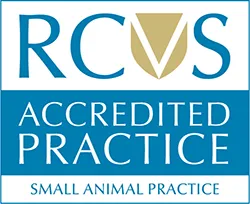Whether you are getting a new baby bunny or adopting an older fluffy bundle of joy, make sure you are prepared for everything rabbit ownership can bring.
Preparing for a New Pet Rabbit
Before you bring your new pet rabbit home, it is advisable to spend some time ‘bunny proofing’ their intended living area.
Whether you intend for your bunny to live indoors with you or outdoors in a hutch, it is essential the area is clean and free from any dangers. Indoors, look out for plug sockets, furniture that might be hazardous to them or even the everyday household items like cleaning products or children’s toys that might endanger your pet.
Outdoor Rabbits
Rabbits can live very happily outdoors. They like the fresh air and enjoy running around in the garden if possible.
If your new rabbit is going to live outside, you will need a large rabbit hutch with as much room as possible. Rabbits like to hop around and need the exercise so if you don’t have a garden, at least ensure there is a rabbit run for your pet to run around in. There should also be a covered area for your rabbit to keep warm and out of the sunshine when it’s hot.
If you have more than one pet rabbit, they should be quite happy sharing a hutch. Do bear in mind that you will need to get them spayed or neutered if they are to live together.
One of the biggest dangers of living outside is the threat of predators. If you are going to house your rabbit outside, it’s important to make sure it is protected from predators such as foxes. For most rabbits, it’s best to start off at least with a large indoor cage. Be sure to lock the hutch at night and keep an eye on it to make sure there are no gaps in the wiring or weak spots in the wood.
Indoor House Rabbits
It is possible to keep your new pet rabbit indoors.
You may want your rabbit to have free run of the house, allowing them to roam freely. In order to keep them safe, you will need to take precautions against wiring and other dangerous items your rabbit is likely to chew.
For most rabbits, it’s best to start off at least with an indoor cage. This gives your bunny somewhere to sleep and allows you somewhere to put him or her when there are guests in the home or you need to keep them contained for a time.
The cage can serve as a sleeping area. Position a litter tray next to it and your rabbit will learn to use that area as a bathroom too. It’s advisable to position litter trays around the house so your rabbit has plenty of options.
Proper Hygiene for Your New Pet Rabbit
It is important to maintain a proper hygiene regime for your new pet rabbit.
Good husbandry of living quarters is very important, particularly in outdoor areas. Hutches should be cleaned regularly, daily in times of mild or warm weather, to prevent flystrike attacks.
Surprisingly, most rabbits will use a litter tray if you provide one, this can make managing their living area much easier – especially in cases of indoor living!
Pet Rabbit Healthchecks
A health check with a vet is usually advisable for new pet rabbits.
Rabbits can be acquired from many places so it’s important to establish that your rabbit is fit and well. A thorough health check is most likely to include:
* a thorough clinical examination to determine your rabbits general state of health
* an examination of your rabbit’s coat to check for parasites or flaky skin
* vaccinations or a discussion about the types of vaccinations your rabbit will need and when they should be given.
Other topics of care you may want to discuss are neutering, behaviour, diet, oral care and exercise.
Your Pet Rabbit's Diet
Diet is an essential element in keeping your rabbit healthy, one that can be quite easily overlooked.
It is recommended that their diet is composed of:
* a small amount of rabbit pellets
* lots of leafy green vegetable leaves such as cabbage
* as much hay as possible
Pellets are preferable over muesli to prevent selective feeding – the process whereby rabbits eat the bits they like and leave the nutritious, but not necessarily appealing, parts behind. Selective feeding makes providing a balanced diet almost impossible.
Rabbits need to gnaw to keep their ever-growing teeth worn down. This is something that they will do instinctively so it’s important that they have enough hay to nibble at. A continuous supply of fresh water is essential.
Making your new pet rabbit comfortable
To make your rabbit feel at home, it is wise to gently introduce sensitive handling and friendly contact for at least an hour a day. They should then begin to feel comfortable with you and their new home.
Whether your rabbit lives indoor, outdoor or a bit of both, they should always have easy access to a retreat where they can hide away if they are startled.
They will quite often prefer to sleep in a secluded place and in times of hot weather shade should be readily available. If you have young children be sure to teach them that a rabbit is not a toy and must be treated gently and with respect.
Neutering Rabbits
In terms of neutering, male rabbits (bucks) tend to have the same drawbacks as tom cats if they’re not castrated.
Most are territorial and will frequently spray urine. Aggression can also be a problem.
Neutered males tend to be happier and more relaxed and nearly all will stop spraying urine even if the operation is performed in later life. However, the ideal time to carry out the procedure in bucks is when they are about four or five months old.
Having female rabbits (does) spayed is even more important. Most females become territorial and aggressive from sexual maturity onwards (4-6 months). They can have repeated false pregnancies and may growl at, scratch and even bite their owners as well as attacking other rabbits that are housed with them. Up to 80% of un-spayed female rabbits develop uterine cancer by the age of five.
Spaying removes the uterus and ovaries of a female rabbit, usually around the age of four or five months. Spayed females are likely to live longer that their un-spayed sisters.
Keeping your rabbit healthy
It is important that you care for your new pet rabbit as well as possible. Whilst they can be quite independent animals, they still require time and attention to keep them safe, happy and well.
If you are worried that your rabbit is unwell, it is best to seek veterinary attention sooner rather than later. Rabbits are well equipped to hide signs of illness as this is a form of self-protection in the wild. It’s quite possible that by the time they display symptoms they have been unwell for longer than you think.
Rabbits are especially prone to dental and digestive problems so if there is any change in their eating or toileting habits you should look to seek advice promptly.
You’ll find more information about taking care of your rabbit on our Pet Care pages or call one of our team on 01604 648221 if you have any questions.








Pet Help Advice